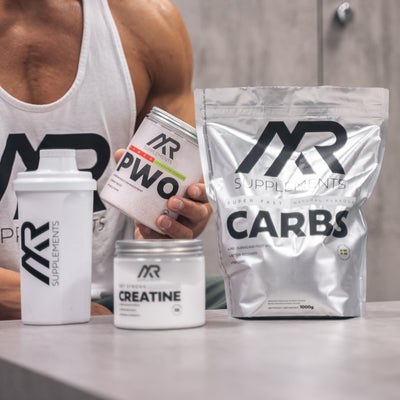Omega-3: A fatty acid found in fish, nuts, and seeds. Omega-3 supplements may be helpful for people who don't get enough of this fatty acid in their diet. Studies have shown that omega-3 supplements can reduce inflammation in the body, which can lead to better muscle recovery and reduced soreness after workouts.
ZMA: A combination of zinc, magnesium, and vitamin B6 used to support recovery and sleep.
Multivitamins: A blend of different vitamins and minerals that help cover any deficiencies in the diet. Multivitamin supplements can be useful for people who have a limited diet or who have difficulty getting enough nutrients.
Whey100: A protein powder that is rich in branched-chain amino acids (BCAAs) and easily digestible. Whey protein is common among athletes and gym goers because it can help build muscle and promote recovery.
EAA: A combination of essential amino acids (EAAs) that the body cannot produce on its own. EAA supplements can help increase muscle protein synthesis and support muscle growth.
PWO: Short for "pre-workout," a blend of various ingredients taken before exercise to increase energy and performance. Common ingredients in PWO supplements include caffeine, beta-alanine, and creatine.
Vitamin D: A vitamin that the body can produce when the skin is exposed to sunlight, but can also be taken as a supplement. Vitamin D supplements may be useful for people who live in places with limited sun exposure or who are at high risk of vitamin D deficiency.
Fat burners: A blend of ingredients that are claimed to help increase metabolism and promote weight loss. Studies on the effectiveness of fat burners are limited, but some ingredients like green tea and caffeine may have some effect on metabolism.




